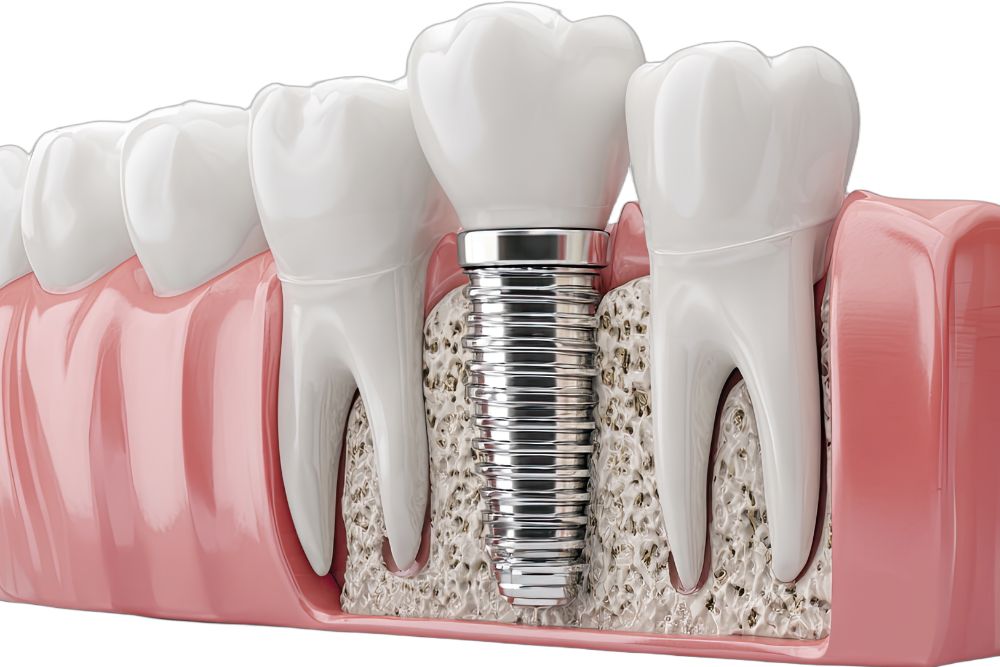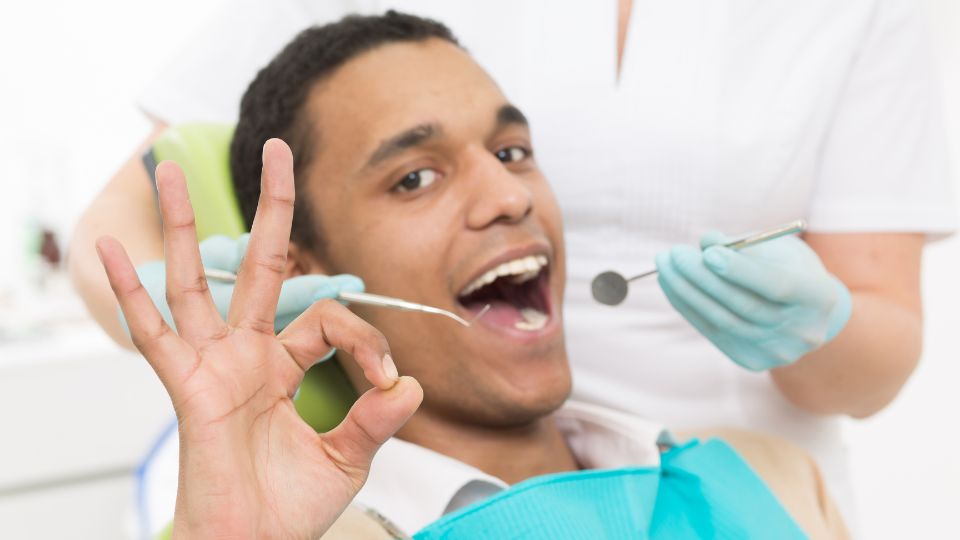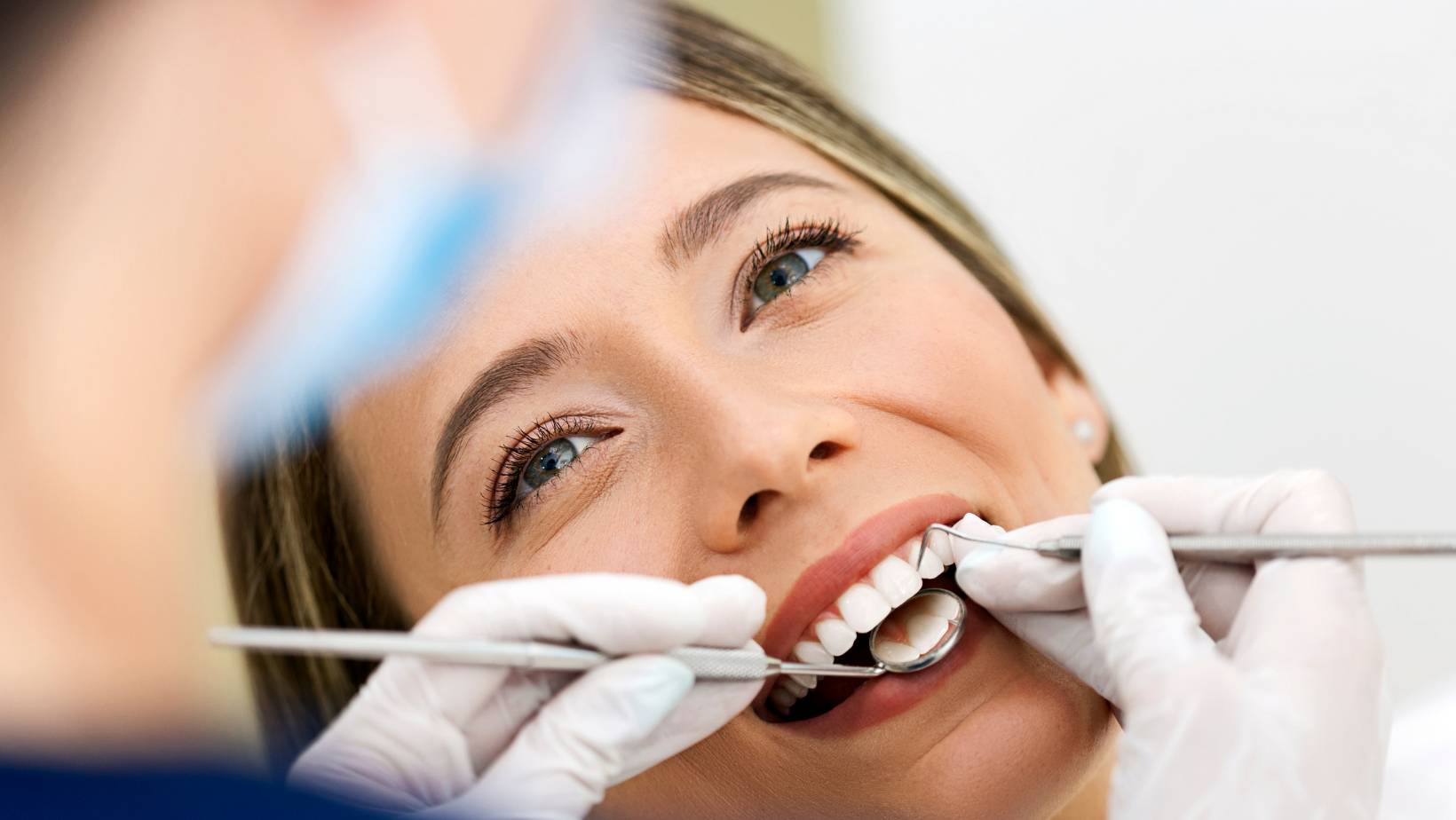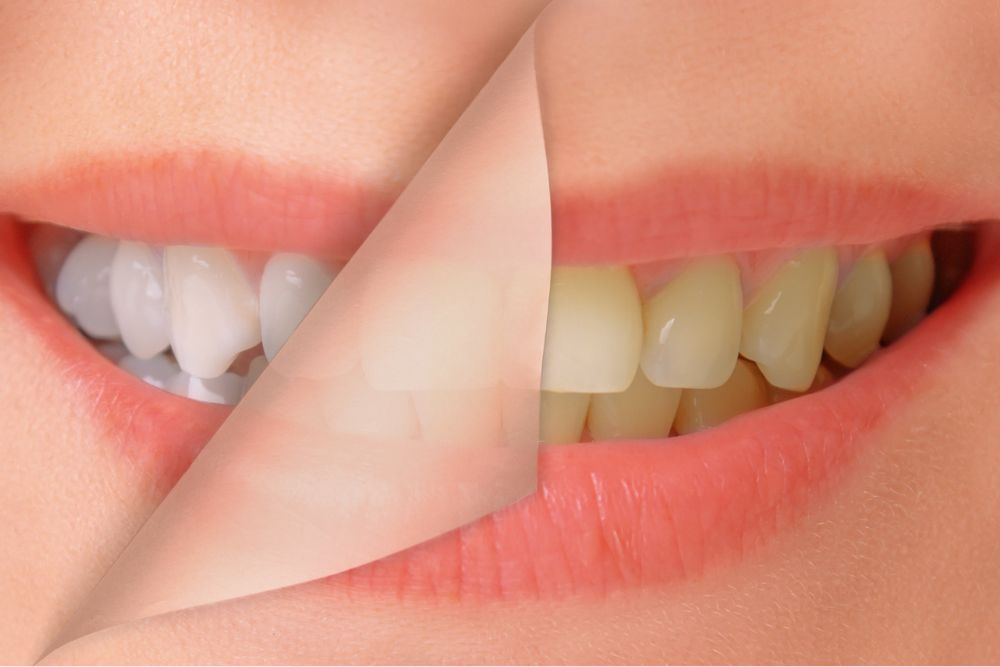What Are Sports Mouthguards?
Sports mouthguards are protective devices worn over the teeth to prevent injuries to the mouth, teeth, gums, and jaw during physical activities. These guards cushion the impact to the face, reducing the risk of broken teeth and injuries to the lips, tongue, face, and jaw. They are widely used in both contact and non-contact sports where there is a risk of facial or dental injury.
Why Are Sports Mouthguards Important?
- Protect Teeth from Injury: In sports like football, basketball, boxing, or hockey, the risk of direct blows to the face is high. Mouthguards help absorb and distribute the force of an impact, preventing broken, chipped, or knocked-out teeth. Even in non-contact sports like gymnastics or cycling, falls can lead to dental injuries that mouthguards can mitigate.
- Prevent Soft Tissue Damage: In addition to protecting your teeth, mouthguards safeguard your lips, cheeks, and gums. During a fall or a blow to the face, the impact can cause your teeth to cut into your soft tissues, leading to painful injuries. Mouthguards form a barrier between your teeth and these soft areas, reducing the risk of cuts and bruises.
- Reduce the Risk of Jaw Injuries: Sports injuries can affect not only the teeth but also the jaw. A sudden force to the lower jaw can cause a fracture or dislocation. Mouthguards help to stabilize the jaw, reducing the severity of an impact and protecting the temporomandibular joint (TMJ), which connects your jawbone to your skull.
- Prevent Concussions: While mouthguards are primarily designed to protect teeth, some studies suggest that they may also help reduce the severity of concussions. By absorbing and distributing the force of a blow to the lower face, mouthguards may limit the amount of force transmitted to the skull, which can help in minimizing the risk of traumatic brain injuries.
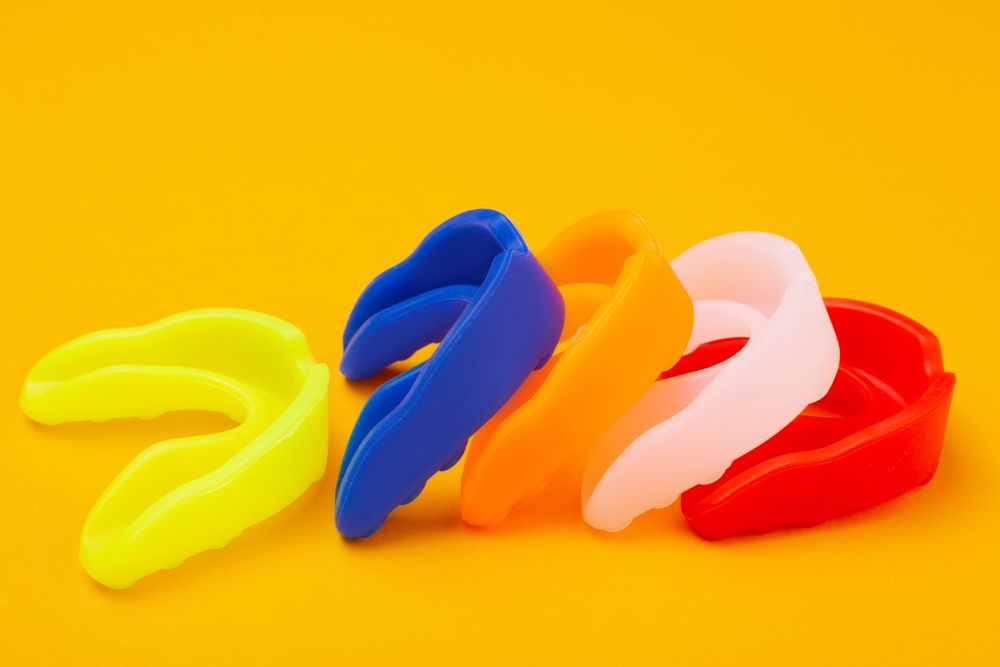
Types of Sports Mouthguards
- Stock Mouthguards: Stock mouthguards are pre-made and ready to wear out of the box. They come in various sizes but are not customizable to the shape of your teeth. These are the least expensive option but often provide the least comfort and protection because they may not fit your teeth well.
Pros:
- Affordable
- Readily available in most sports stores
Cons:
- Poor fit
- Bulky and may interfere with breathing or speaking
- Limited protection
- Boil-and-Bite Mouthguards: These mouthguards are made from a thermoplastic material that softens when boiled in water. Once softened, you can bite into the mouthguard to mold it to the shape of your teeth and mouth. This offers a more customized fit than stock mouthguards and is popular among athletes.
Pros:
- Customizable to your teeth
- Affordable and widely available
- Better fit and protection than stock mouthguards
Cons:
- May wear out faster than custom-made guards
- Still may not provide a perfect fit for everyone
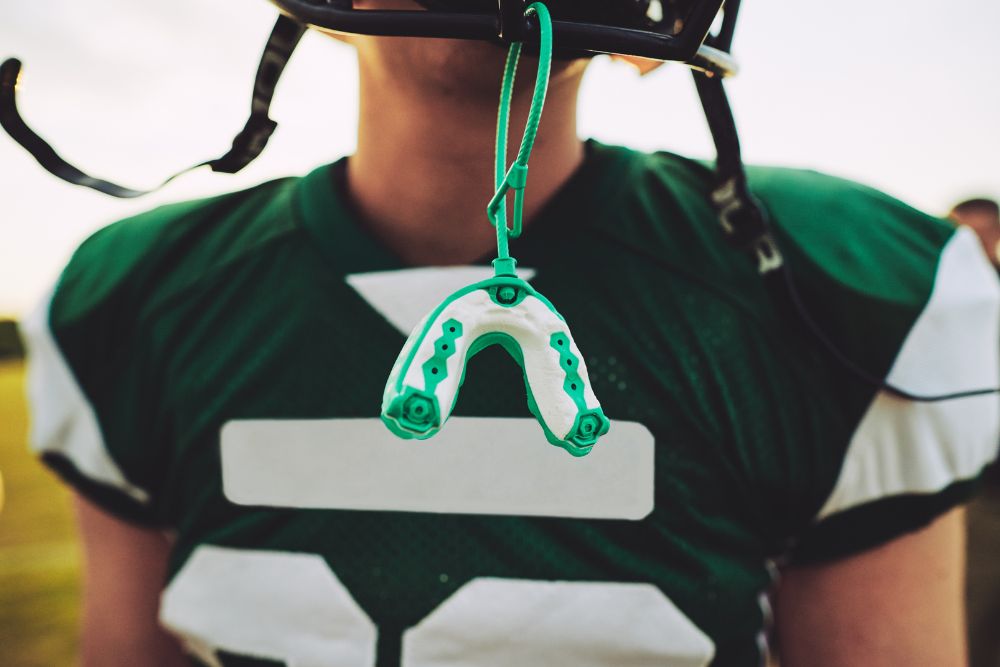
- Custom-Made Mouthguards: Custom-made mouthguards are created specifically for your teeth by a dentist. A mold is taken of your mouth, and the mouthguard is fabricated to fit perfectly, offering the highest level of comfort and protection. These are often recommended for athletes participating in contact sports.
Pros:
- Optimal fit and comfort
- Maximum protection for teeth, gums, and jaw
- Durable and long-lasting
Cons:
- More expensive than other options
- Requires a visit to the dentist
Which Sports Require Mouthguards?
While mouthguards are essential for contact sports, they are recommended for many other physical activities as well. Below is a list of sports and activities where wearing a mouthguard is highly advisable:
- Contact Sports:
- Football
- Rugby
- Boxing
- Wrestling
- Hockey (ice and field)
- Basketball
- Martial arts (MMA, karate, judo)
Non-Contact Sports:
- Gymnastics
- Mountain biking
- Skateboarding
- Skiing and snowboarding
- Volleyball
- Other Recreational Activities:
- Horseback riding
- Climbing
- Rollerblading
- Any activity involving risk of falls or facial impact

Benefits of Wearing a Mouthguard in Different Sports
- Football and Rugby: In these high-impact sports, mouthguards are essential to protect against the intense contact between players. A direct hit to the face could easily lead to knocked-out teeth, jaw fractures, or concussions. A mouthguard absorbs the shock, significantly reducing injury risk.
- Boxing and Martial Arts: Sports like boxing or MMA require mouthguards to protect against forceful punches or kicks to the mouth and face. The impact in these sports is frequent and often severe, so custom-made mouthguards are typically recommended for the highest level of protection.
- Basketball and Soccer: While not often thought of as contact sports, players can collide or be hit by an elbow, ball, or accidental punch, making mouthguards crucial for dental protection. Fast-paced movements increase the likelihood of such accidents, so having a mouthguard on hand helps mitigate risks.
- Hockey (Ice and Field): Both field and ice hockey involve the risk of being hit by a stick, ball, or puck. The fast-paced nature and the solid objects involved make mouthguards critical to protect the teeth and jaw.
- Skateboarding and Biking: In non-contact sports like skateboarding and mountain biking, falls are the primary cause of dental injuries. Hitting the ground or other objects can easily break or chip teeth, and wearing a mouthguard significantly reduces this risk.
Choosing the Right Mouthguard
When selecting a mouthguard, consider factors such as:
- Comfort and Fit: The mouthguard should fit snugly over your teeth without being too tight or loose. It should also be comfortable enough to wear for extended periods.
- Breathing and Speaking: A good mouthguard should not restrict your ability to breathe or speak clearly.
- Durability: The material should be tough enough to withstand the forces encountered in your sport, without wearing out too quickly.
- Proper Cleaning: Make sure the mouthguard is easy to clean to maintain oral hygiene. Some guards are dishwasher-safe, while others need to be cleaned by hand.
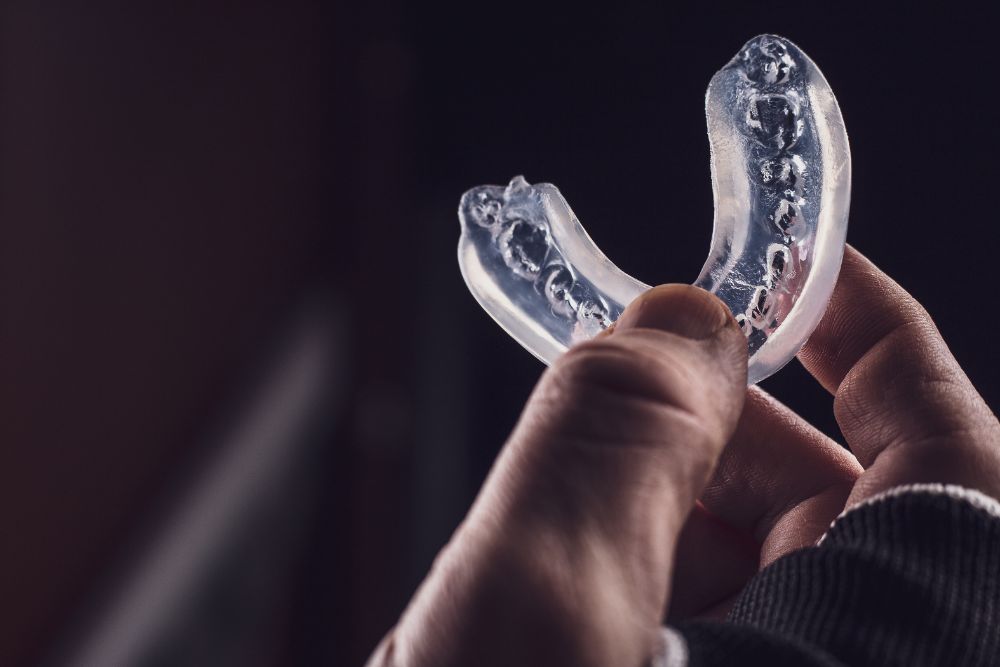
Conclusion
Sports mouthguards are an essential piece of protective gear for athletes of all ages and skill levels. They provide crucial protection against dental injuries, jaw fractures, and even concussions, making them a necessary investment for anyone involved in sports. Whether you participate in high-contact sports like football and boxing or recreational activities like skateboarding, wearing a mouthguard significantly reduces the risk of injury, helping you stay safe while enjoying your favorite activities. For optimal comfort and protection, a custom-made mouthguard from a dentist is often the best option, but boil-and-bite models also provide a reliable alternative for many athletes.


